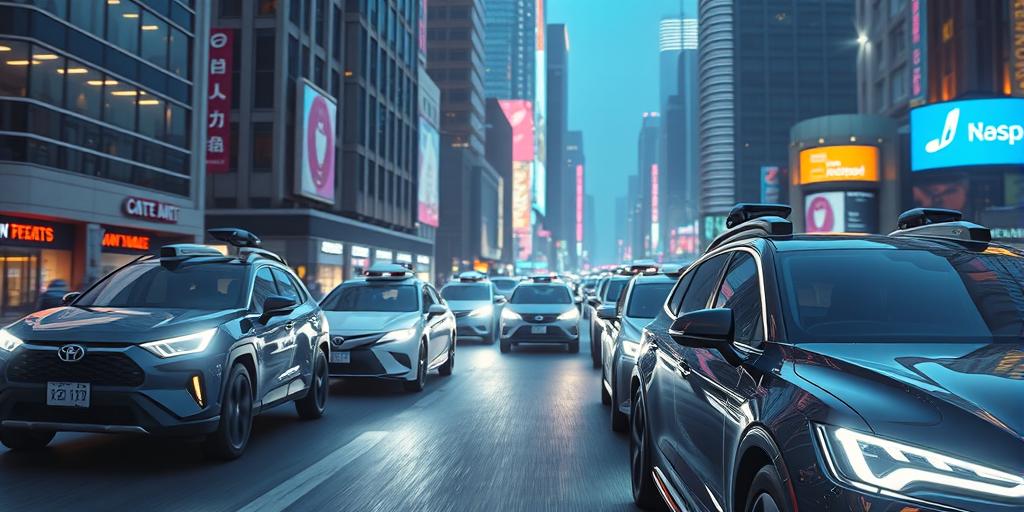What Happens When AI Makes Decisions Without Us?
Have you ever considered a world where artificial intelligence (AI) makes critical decisions without human intervention? It’s a scenario that’s quickly moving from science fiction to reality, raising profound ethical, societal, and practical questions. Are we ready for a future where algorithms dictate our lives? Let’s delve into what happens when AI makes decisions without us.
The Rise of Autonomous AI
The increasing sophistication of AI systems means they are taking on more complex tasks. We are witnessing the expansion of AI capabilities across various sectors, from autonomous vehicles navigating our roads to AI-powered medical diagnosis systems evaluating patient health. This shift towards autonomous AI, where AI systems operate independently, raises the critical question: who’s responsible when things go wrong? Consider the implications of a self-driving car causing an accident; or an AI-driven loan application system denying someone a loan based on flawed or biased algorithms. This necessitates thorough debate on the legal and ethical ramifications of such automated decision-making.
Algorithmic Bias and Fairness
One major concern is the potential for algorithmic bias in AI decision-making systems. AI systems are trained on data, and if that data reflects existing societal biases (racial, gender, socioeconomic), the AI will likely perpetuate and even amplify those biases. This can lead to unfair or discriminatory outcomes, which is why ensuring AI systems are trained on fair and representative data is paramount. Understanding and mitigating algorithmic bias is crucial to ensure equitable AI-driven outcomes.
Accountability and Transparency
Transparency in how AI systems reach their decisions is another significant challenge. Often, the decision-making process within complex AI systems, particularly deep learning models, is opaque, known as the “black box” problem. This lack of transparency makes it difficult to understand why a specific decision was made, hindering our ability to identify and rectify errors or biases. Establishing standards for accountability and transparency in AI systems is crucial for building trust and ensuring responsible AI development. The need for explainable AI (XAI) is becoming increasingly apparent as we rely more on these complex systems.
The Impact on Society
The implications of AI making decisions without human oversight extend beyond individual cases. Consider the potential societal effects. Could autonomous AI systems lead to increased job displacement? What about the impact on democratic processes if AI algorithms are used to manipulate information or influence voters? These questions need careful consideration as we integrate AI more deeply into our societies. This involves a critical examination of the political, social, and economic ramifications.
Job Displacement and Economic Inequality
One of the most discussed concerns about the rise of AI is its potential impact on jobs. Automation driven by AI has already begun to displace workers in some sectors, and this trend is likely to accelerate. While some argue that AI will create new jobs, there’s a real risk of increased economic inequality if the benefits of AI are not shared equitably across society. Policymakers need to develop strategies to mitigate the potential negative impacts of AI-driven job displacement, such as retraining programs and social safety nets.
The Erosion of Human Control
Perhaps the most unsettling aspect is the potential erosion of human control over critical decisions. As AI systems become more autonomous, there’s a risk of losing our ability to understand, influence, or even override their decisions. This raises concerns about the potential for unintended consequences or even catastrophic failures. Maintaining a degree of human oversight and the ability to intervene is essential to safeguard against unforeseen problems and maintain human agency in a world increasingly shaped by AI.
The Future of Human-AI Collaboration
The goal shouldn’t be to eliminate human involvement in decision-making but rather to find ways to effectively collaborate with AI. Human expertise and judgment remain invaluable, especially in contexts that require ethical considerations, nuanced understanding, or creative problem-solving. The future of AI should be one of human-AI collaboration, leveraging the strengths of both to make better decisions and solve complex problems.
Collaborative AI Systems
The development of collaborative AI systems, where humans and AI work together, is a crucial area of research. Such systems would allow humans to maintain oversight while benefiting from the speed and efficiency of AI. This is a promising avenue to harness the power of AI while mitigating its potential risks. It involves designing AI systems that are transparent, explainable, and designed for effective human-AI interaction.
Responsible AI Development
Ultimately, ensuring a future where AI benefits humanity requires a commitment to responsible AI development. This includes developing ethical guidelines, establishing regulatory frameworks, and promoting transparency and accountability in the creation and deployment of AI systems. We need a proactive approach, fostering open dialogue and collaboration between researchers, policymakers, and the public, to shape a future where AI is a force for good.
Ready to embrace the future? Let’s discuss this further in the comments below!













